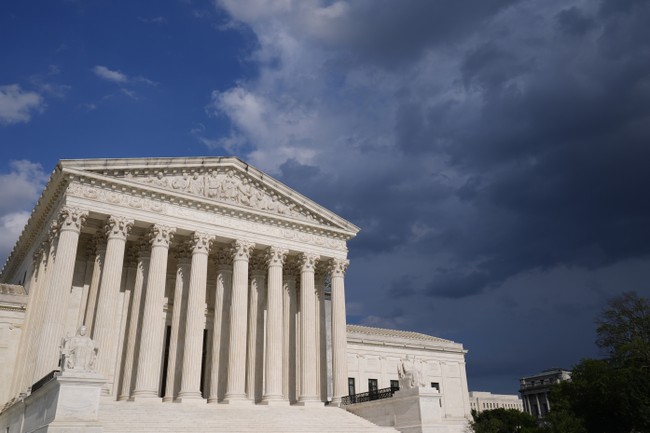In the lead-up to the upcoming congressional election cycle, a significant increase in political donations from major food companies to Democratic lawmakers has raised eyebrows, particularly as many Democrats have openly criticized these companies for allegedly contributing to rising food prices.
A Reuters analysis of Federal Election Commission (FEC) data reveals that Democrats have accepted substantial contributions from top U.S. grocery chains and their suppliers, even as they accuse these companies of pushing prices higher at the expense of consumers.
Food prices have surged by 25% between 2019 and 2023, making the economy a top concern for voters, according to Reuters/Ipsos polling.

Freedom-Loving Beachwear by Red Beach Nation – Save 10% With Code RVM10
This concern is particularly acute as the Federal Trade Commission (FTC) is set to challenge a proposed $24.6 billion merger between Kroger, the nation’s largest grocer by revenue, and smaller rival Albertsons in an Oregon federal court.

The trial, which begins Monday, could have significant implications for shoppers and workers across the country.
The FEC data shows that Albertsons’ political action committee (PAC) has already contributed $291,500 in the current election cycle, a substantial increase from the $90,000 it donated during the 2021-2022 cycle.
Similarly, Kroger’s PAC has donated $141,000 so far, slightly more than its total donations in the previous cycle.
Notably, 154 Democratic lawmakers or their fundraising organizations have accepted contributions from leading food companies, including 51 congressional Democrats who have publicly criticized corporate greed in the food industry.
Among those receiving donations are some of the Senate’s most vulnerable Democrats, such as Ohio’s Sherrod Brown, Pennsylvania’s Bob Casey, and Wisconsin’s Tammy Baldwin.
These lawmakers have both criticized the tactics of food companies and accepted their donations. For instance, Brown, who faces a challenging re-election bid, received $2,500 from Kroger’s PAC and $5,000 from Albertsons’ PAC. Casey has also accepted donations from companies like Mondelez International and Procter & Gamble despite accusing them of contributing to “greedflation” by shrinking product sizes while maintaining prices.
Meanwhile, Kamala Harris has made addressing price gouging a focal point of her presidential campaign, particularly in the context of rising grocery prices.

Harris’s proposal to impose price controls on food items has sparked concern among small and mid-sized grocers, who argue that such measures could devastate their businesses.
Rep. Michael Rulli, a first-term Republican from Ohio who runs a small chain of grocery stores, expressed his concerns about Harris’ proposal in an exclusive interview with Fox News Digital.

Rulli warned that price controls could be the “nail in the coffin” for family-owned grocery stores like his, which already operate on razor-thin profit margins.
He cited the example of a bottle of Tide laundry detergent, explaining that if manufacturers like Procter & Gamble are forced to keep prices static for an extended period, they might simply stop producing certain products, leading to a significant reduction in the variety of items available to consumers.
Rulli, who won a special election in June to succeed retired Rep. Bill Johnson, R-Ohio, emphasized that the impact of Harris’ proposal could extend far beyond his stores.
He predicted that many smaller and independent grocery stores would be forced out of business, exacerbating a trend that has already seen several stores close in his area over the past two years.
Harris’s proposal has also faced criticism from industry groups like the National Grocers Association, which argues that independent grocers are already struggling with the same inflationary pressures affecting their customers.
The group has labeled the plan “a solution in search of a problem,” warning that it could stifle economic growth and harm small businesses.
As the debate over food prices and corporate donations intensifies, the relationship between Democratic lawmakers and the food industry is likely to come under increased scrutiny, particularly as voters weigh their options in the upcoming election cycle.
The opinions expressed by contributors and/or content partners are their own and do not necessarily reflect the views of LifeZette. Contact us for guidelines on submitting your own commentary.
Read the full article here





![Joe Rogan Predicted L.A. Disaster Months Before It Happened [WATCH] Joe Rogan Predicted L.A. Disaster Months Before It Happened [WATCH]](https://www.lifezette.com/wp-content/uploads/2024/09/2024.09.27-07.18-lifezette-66f7050012607.jpg)




![Actor Dennis Quaid Blasts California Officials While Praising Firefighters [WATCH] Actor Dennis Quaid Blasts California Officials While Praising Firefighters [WATCH]](https://www.lifezette.com/wp-content/uploads/2025/01/2025.01.09-06.01-lifezette-67800ede4b613.jpg)